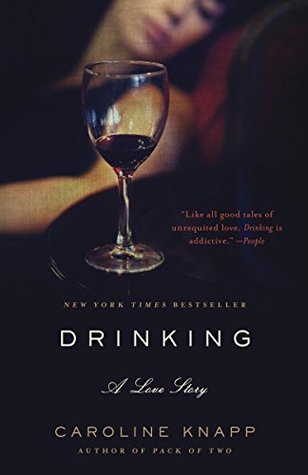More on this book
Community
Kindle Notes & Highlights
The real questions, the questions I would have asked myself if I’d been willing to look more closely, might have been more pointed: Are you driven by a feeling of hunger and need? When someone sets a bottle of wine on the dinner table, do you find yourself glancing at it subversively, possessively, the way you might look at a lover you long for but don’t quite trust? When someone pours you a glass from that bottle, do you take careful note of the level of liquid in the glass, and measure it secretly against the level of liquid in the other glasses, and hold
your breath for just a second until you’re assured you have enough? Do you establish an edgy feeling of relationship with that glass, that wine bottle; do you worry over it, care about it, covet it, want all of it for yourself? Can you bear the thought that it might run out, that you’ll be left sitting there without it, alone and unprotected?
Enough? That’s a foreign word to an alcoholic, absolutely unknown. There is never enough, no such thing. You’re always after that insurance, always mindful of it, always so relieved to drink that first drink and feel the warming buzz in the back of your head, always so intent on maintaining the feeling, reinforcing the buzz, adding to it, not losing it. A woman I know named Liz calls alcoholism “the disease of more,” a reference to the greediness so many
of us tend to feel around liquor, the grabbiness, the sense of impending deprivation and the certainty that we’ll never have enough. More is always better to an alcoholic; more is necessary. Why have two drinks if you can have three? Three if you can have four? Why stop? Why and how?
The knowledge that some people can have enough while you never can is the single most compelling piece of evidence for a drinker to suggest that alcoholism is, in fact, a disease, that it has powerful physiological roots, that the alcoholic’s body simply responds differently to liquor than a nonalcoholic’s. Once I started to drink, I simply did not know how or when to stop: the feeling of need kicked in, so pervasively that stopping didn’t feel like an option.
The paradoxical thing about drinking alone—the insidious thing, really—is that it creates an illusion of emotional authenticity which you can see as false only in retrospect. When I drank by myself, the liquor truly seemed like the one thing that gave me access to my true feelings, a route to real emotion. Drinking and melting down; drinking and weeping; drinking and then sharing that pain with another person across the phone. I’m depressed. I’m lonely. Help me. But liquor is deceptive, the feelings it generates illusory: the next day you don’t remember the action or the feelings that
...more
The struggle to control intake—modify it, cut it back, deploy a hundred different drinking strategies in the effort—is one of the most universal hallmarks of alcoholic behavior. We swear off hard liquor and resolve to stick to beer. We develop new rules: we’ll never drink alone; we’ll never drink in the morning; we’ll never drink on the job; we’ll only drink on weekends, or after five o’clock; we’ll coat our stomachs with milk or olive oil before we go out drinking to keep ourselves from getting too drunk; we’ll have a glass of water for every glass of wine; we’ll do anything—anything—to show
...more
When you drink to deal with feelings like that, it’s impossible to get over them. When you drink to drown out fear and rage, you quite literally disassociate from them, and you stop trusting yourself, stop trusting your own judgment and integrity.
“You’d drink, too, if you had my problems.” That’s the thinking. “I’m not unhappy because I drink; I drink because I am unhappy.” That is the logic, and every alcoholic on the planet uses it.
Alcoholics drink in order to ease the very pain that drinking helps create. That’s another one of the great puzzles behind liquor, the great paradoxes. You hurt, you drink; you hurt some more, you up the intake. In the process, of course, you lose any chance you might have had to heal authentically.


